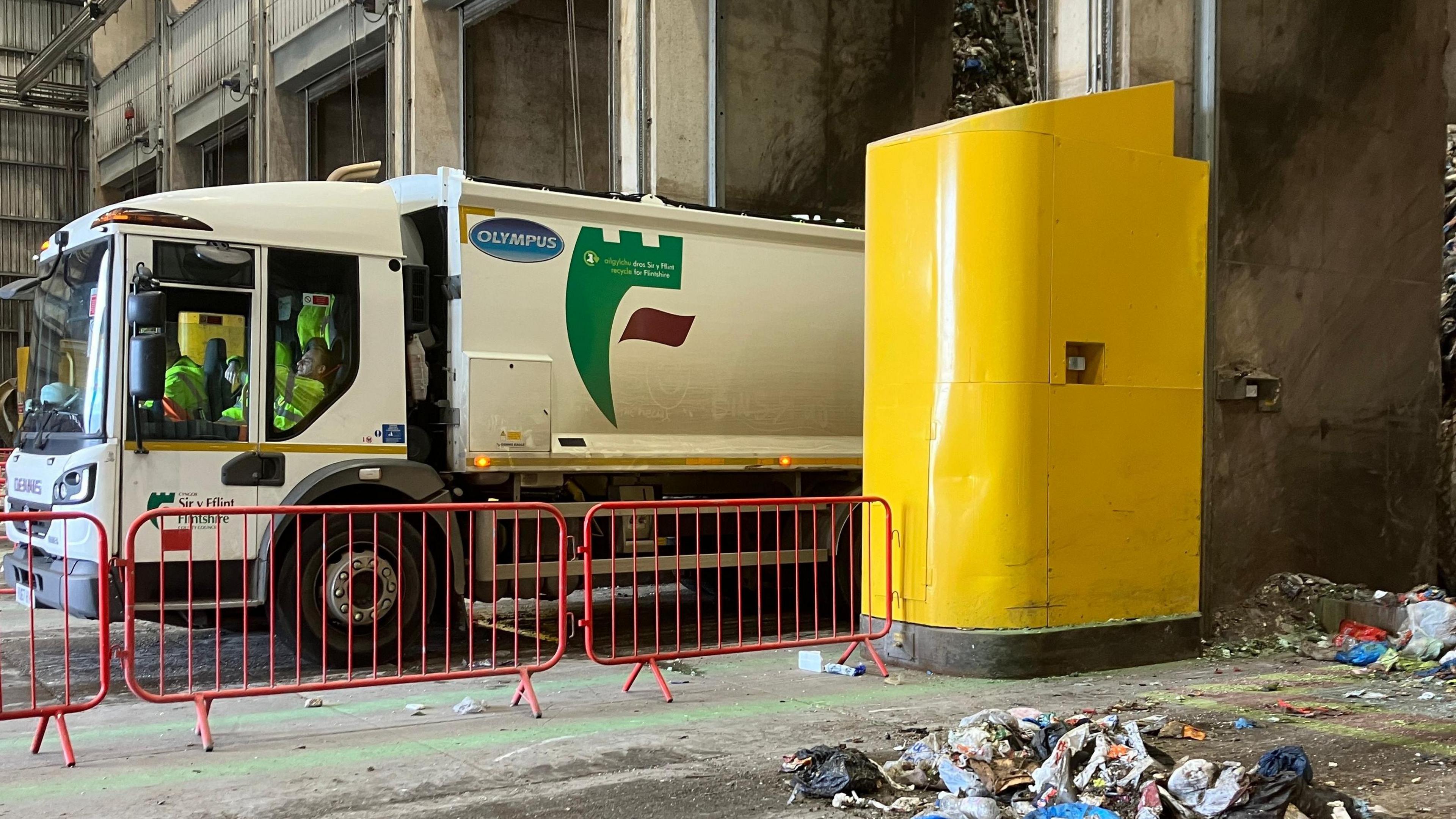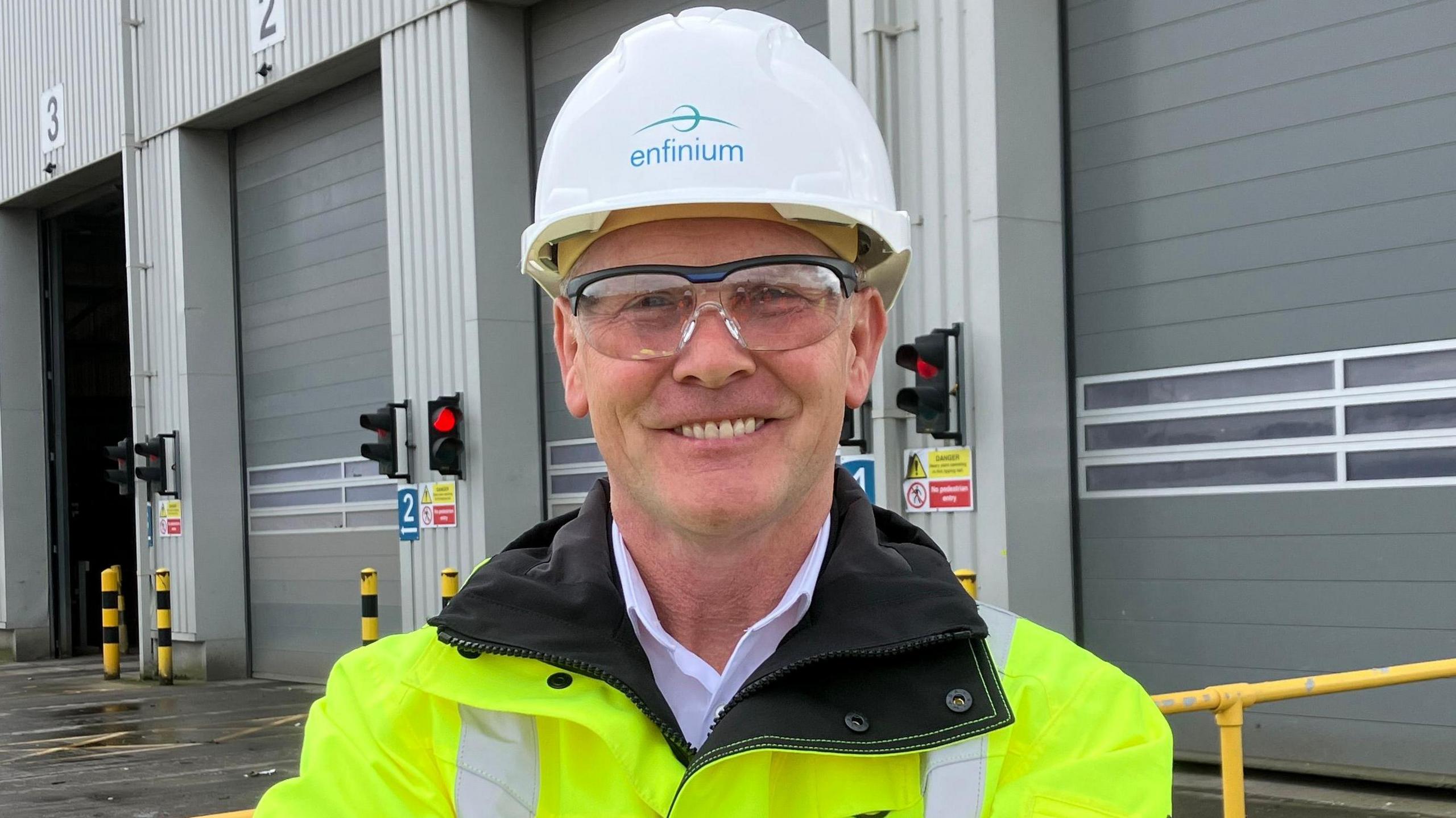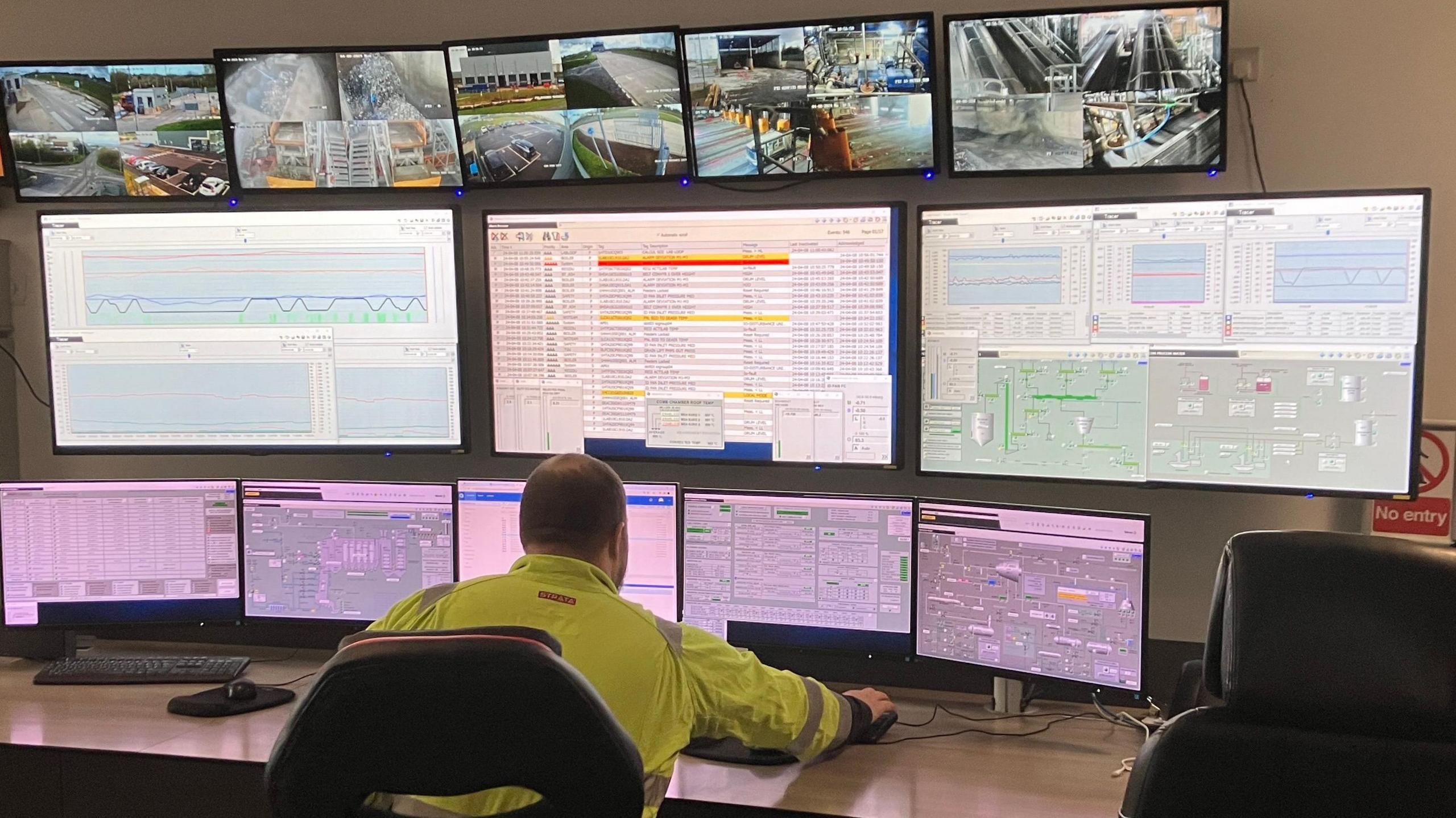Firm's £200m bid to be at carbon capture forefront

Enfinium wants to capture carbon from 230,000 tonnes of waste per year
- Published
A waste plant is investing £200m in what it said was an effort to be at the cutting edge of carbon capture and storage in Wales.
CCS reduces carbon dioxide emissions by stopping them entering the atmosphere and storing them deep underground.
Enfinium's Parc Adfer facility on Deeside, Flintshire, converts up to 232,000 tonnes of non-recyclable waste into electricity every year.
The company is bidding for a UK government grant to create a new plant to remove 100,000 tonnes of CO2 from the atmosphere a year, which CEO Mike Maudsley called "pioneering".
If you live in north Wales, there is a good chance your non-recyclable rubbish will end up at Parc Adfer - it processes waste from across the region by burning it, producing enough energy to power 30,000 homes.

Mike Maudsley, CEO of Enfinium says the scheme is "a real solution"
Parc Adfer opened in 2019 in partnership with five local authorities: Anglesey, Gwynedd, Conwy, Denbighshire and Flintshire.
Although it already prevents rubbish being sent to landfill sites, Enfinium is bidding to make the process even more environmentally friendly.
Mr Maudsley said: "We have to capture CO2 and stop it going into the atmosphere. Energy from waste is a real solution for this."
What is carbon capture and can it fight climate change?
- Published11 December 2023
Plan to capture, ship and bury power station's CO2
- Published19 February 2024
Cement works plans £400m carbon capture facility
- Published10 August 2023
Some climate campaigners such as Greenpeace say carbon capture technology is unproven and may even encourage more industrial fossil fuel use.
Elgan Roberts is the low carbon energy programme manager for Ambition North Wales, a partnership which promotes sustainable developments across the region.
He said companies were putting a greater emphasis on environmental concerns, "not just to meet legislation, but also to to provide the products that people want, that are more sustainable".
He added: "We're looking to reduce the embedded carbon within the infrastructure we build and also improve biodiversity."

Parc Adfer processes waste from across North Wales
The Welsh government aims to have net zero carbon emissions by 2035.
Parc Adfer's project will be considered alongside rival bids by the UK government and an update on which projects are progressing is expected by the summer.
Mike Maudsley said, if the bid was successful, the project would employ about 1,000 people during the construction phase and the carbon capture plant could be operating by 2029.